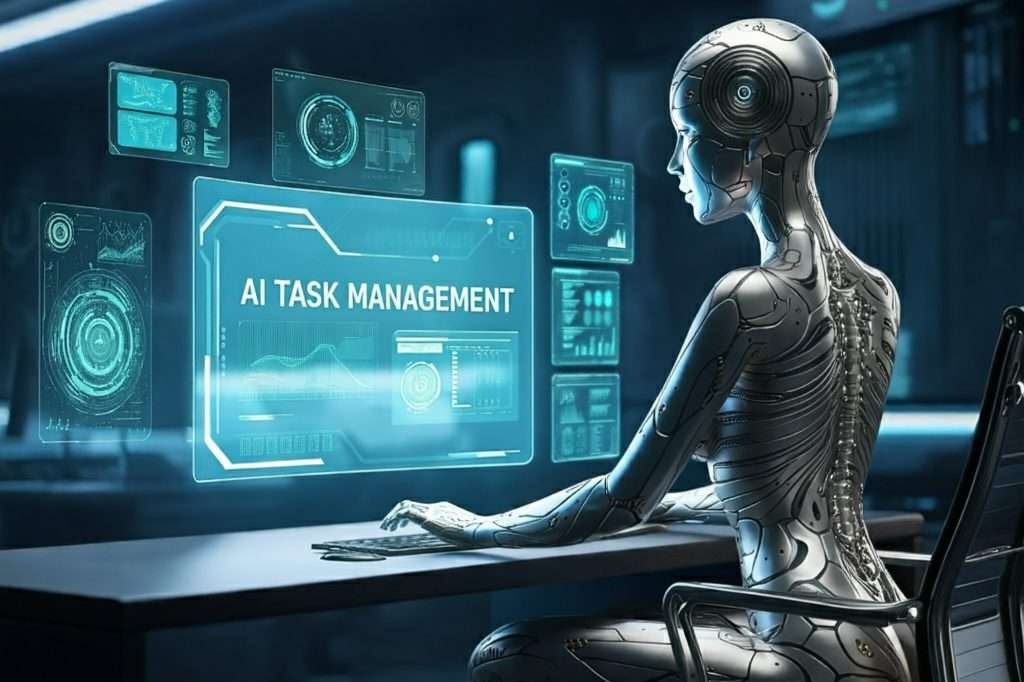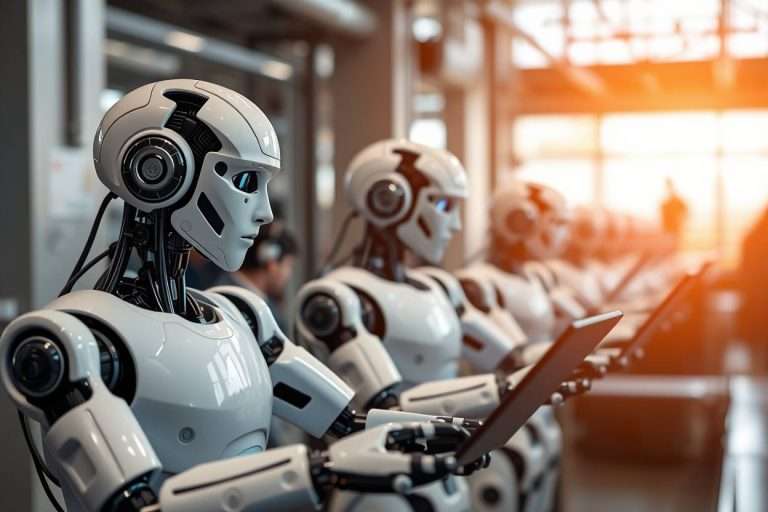How AI is transforming the digital workspace and task management

In today’s digital era, businesses face the growing challenge of managing complex workflows and maintaining productivity. Artificial intelligence (AI) has emerged as a solution, transforming how teams collaborate, manage tasks, and streamline operations. One of the most significant innovations is AI-powered tools like the bot free AI note-taker, which helps teams capture essential meeting details and automate task creation. These tools are becoming indispensable as organizations shift to remote and hybrid work environments.
AI in Task Management: Revolutionizing Workflows
AI-powered task management tools have drastically reshaped how teams approach their workflows, moving beyond traditional methods to incorporate automation, predictive analytics, and enhanced collaboration features. These tools have become crucial for businesses seeking to optimize productivity, manage time effectively, and foster seamless communication.
Key Advantages of AI Task Management Tools:
- Automation of Routine Tasks: AI can handle repetitive tasks such as sending reminders, updating status reports, or even assigning tasks based on predefined criteria. This automation frees up time for employees to focus on higher-value strategic work.
- Improved Scheduling and Prioritization: AI-powered tools like ClickUp and Wrike can automatically adjust schedules, predict project risks, and optimize resource allocation. By learning from past data and team behavior, AI helps teams prioritize tasks effectively, ensuring that the most critical items are handled first.
- Smart Notifications: AI enhances task management by providing personalized notifications, which are aligned with each user’s schedule, preventing deadline overruns.
- Enhanced Collaboration: With features like real-time updates, AI tools integrate communication across platforms, making team collaboration smooth and keeping everyone on the same page.
- Real-time Adaptability: As workloads fluctuate, AI can dynamically adjust plans and provide insights into potential roadblocks, ensuring teams remain flexible and can react swiftly to changes.
Top AI-Powered Task Management Tools

- ClickUp: Automates workflows, improves scheduling, and sends smart notifications, ensuring team productivity and efficient communication.
- Wrike: Predicts risks and optimizes workflows, providing AI-driven scheduling and task allocation to ensure on-time delivery.
- Asana: Uses Smart Goals and Smart Onboarding to set goals, track progress, and suggest next steps based on historical data.
- Bluedot AI: Automates meeting management with AI-powered note-taking and task generation, which is ideal for teams reliant on virtual communication.
- Taskade: Automates task creation and assists in collaboration, adapting to different work styles and improving idea generation.
AI Capabilities for Managing Digital Workspaces
As companies increasingly shift to digital workspaces, AI plays an even more significant role in ensuring seamless management. Digital workspaces refer to the interconnected environments where employees collaborate, often across distributed locations, using a suite of digital tools. In this context, AI enhances both the productivity and security of digital workspaces.
Key AI Features in Digital Workspace Management:
- Workflow Automation: AI-driven tools can automate recurring tasks, ensuring that operations run smoothly without manual intervention. For example, AI can trigger automatic responses or notifications when certain conditions are met in the system.
- Predictive Analytics: By analyzing historical data, AI provides predictive insights that help identify bottlenecks in workflows before they become significant issues. This not only enhances productivity but also helps in decision-making by providing data-driven forecasts.
- Enhanced Collaboration Tools: AI can streamline meetings by providing real-time transcription, translation, and even sentiment analysis. For example, the Google Meet extension helps by automatically capturing and summarizing meetings, making it easier for teams to revisit key discussions and action items.
- Security and Compliance: AI-powered tools, such as Cisco’s Hypershield, actively monitor digital environments for threats, ensuring that sensitive data is protected and that companies adhere to regulatory requirements. AI can detect potential breaches and flag suspicious activity in real time.
- Personalized User Experience: AI adapts digital workspaces based on user behavior, offering tailored experiences that increase satisfaction and efficiency. By learning from individual workflows, AI provides relevant recommendations that help users work more effectively.
The Future of AI in Digital Workspaces and Task Management
The integration of AI into digital workspaces and task management is more than just a trend—it is reshaping the future of work. Several key trends will continue to drive this evolution:
Human-Centric AI Design
There is a growing emphasis on creating AI tools that are not only efficient but also empathetic and user-friendly. These systems aim to simplify complex tasks and improve user interaction, making them more intuitive and accessible to all users, regardless of technical expertise.
AI-Driven Decision-Making
AI is increasingly being used to drive decision-making processes by analyzing real-time data and providing actionable insights. This enables managers and teams to make well-informed decisions quickly, reducing the margin for error and improving outcomes across projects.
Sustainable AI Practices
As businesses place more importance on sustainability, AI is being leveraged to optimize energy usage and reduce waste in digital workspaces. This includes the development of energy-efficient AI models that can lower the overall environmental impact of digital operations.
Integration with Emerging Technologies
AI is increasingly integrated with other advanced technologies like the Internet of Things (IoT), blockchain, and augmented reality (AR). These convergences create more immersive and interconnected work environments, where AI helps manage and optimize processes more effectively.
Challenges in Implementing AI in the Workspace
While the benefits of AI are clear, there are challenges to its widespread adoption. A major concern revolves around data privacy. AI tools rely on large amounts of data, and organizations must ensure compliance with data protection regulations. Additionally, companies face the issue of integration with legacy systems, as many older technologies may not be compatible with modern AI solutions. Lastly, there is the challenge of employee resistance and skills gaps. Many workers may be uncomfortable with AI-driven changes, and organizations must invest in training to ensure that employees are equipped to use these tools effectively.
Conclusion: AI’s Prominent Role in the Future of Work
The future of task management and digital workspace management is undeniably tied to AI. Tools such as the AI note taker offer a glimpse into a future where AI enhances not only productivity but also the quality of collaboration and decision-making. Businesses that successfully integrate AI into their workflows will experience increased efficiency, stronger teamwork, and better adaptability in the digital age. However, thoughtful implementation, considering challenges like data privacy and ethical AI use, will be essential to reaping the full benefits of AI-powered work environments.




